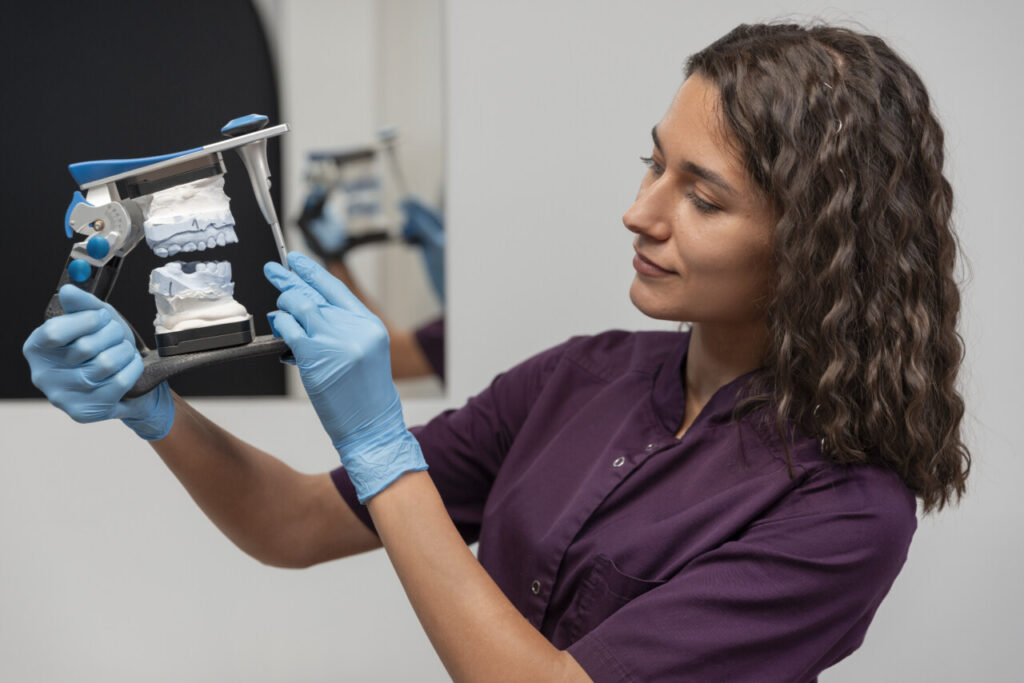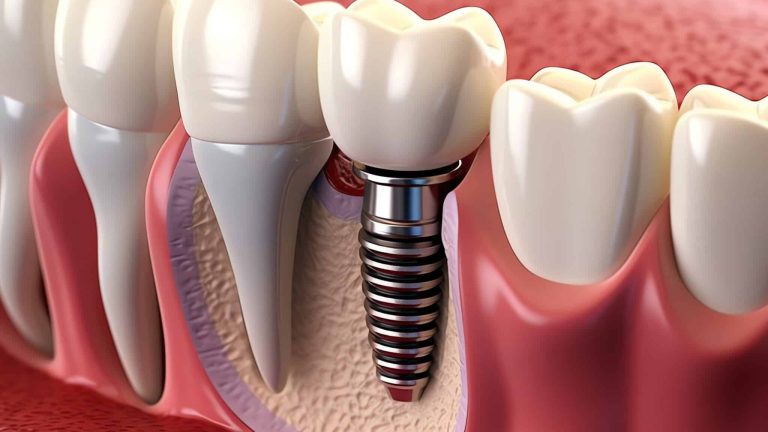Removable dentures are an effective solution for replacing missing teeth, restoring functionality, and enhancing the aesthetics of your smile. However, proper maintenance is essential to ensure their durability, prevent oral infections, and maintain good oral health. This article provides detailed guidance on specific oral care for people who use removable dentures.
What Are Removable Dentures?

Removable dentures are devices designed to replace missing teeth and can be removed by the user for cleaning and maintenance. There are two main types:
- Full Dentures: Replace all teeth in an arch (upper or lower). Commonly used by individuals who have lost all their teeth.
- Partial Dentures: Replace only a few teeth and are typically attached to natural teeth using clasps or connectors.
Both types are made from materials such as acrylic, resin, and, in some cases, metal, and require specific care to maintain their functionality and aesthetics.
The Importance of Denture Care
Proper care for removable dentures is crucial for several reasons:
- Preventing Infections: Dentures can harbor bacteria, fungi, and food particles, increasing the risk of infections such as denture-related stomatitis.
- Preserving the Dentures: Proper maintenance prolongs the lifespan of dentures, preventing cracks, stains, and deformation.
- Overall Oral Health: Gums and underlying tissues need to stay healthy to avoid issues such as irritation or bone resorption.
Daily Care for Removable Dentures
1. Cleaning the Dentures
Proper cleaning is essential to remove food debris, plaque, and stains. Follow these steps:
- Initial Rinse: Rinse the dentures with warm water to remove food particles before cleaning.
- Brushing: Use a special denture brush (or a soft-bristled toothbrush) and a denture-specific cleaner. Avoid regular toothpaste, as it may be abrasive and damage the surface.
- Daily Soaking: Place the dentures in a special cleaning solution overnight to disinfect and keep them hydrated. This helps eliminate bacteria and fungi.
2. Caring for the Mouth
Even though dentures replace teeth, oral tissues also need attention:
- Brush the gums, palate, and tongue with a soft brush to stimulate circulation and remove bacteria.
- Use dentist-recommended mouth rinses to maintain good oral hygiene.
3. Removing Dentures at Night
It is important to remove dentures before sleeping to allow oral tissues to rest and prevent infections. Store the dentures in water or a specific solution to prevent them from drying out or deforming.
Common Mistakes in Denture Care
- Using Hot Water: Can deform dentures, especially those made of acrylic.
- Neglecting Brushing: Not cleaning dentures daily can lead to plaque buildup and stubborn stains.
- Wearing Them Overnight: Increases the risk of infections and oral sores.
- Using Abrasive Products: Avoid household cleaners or abrasive toothpaste, as they can damage dentures.
Professional Maintenance
In addition to daily care, regular dental visits are essential:
- Periodic Checkups: The dentist can assess the fit of the dentures and perform deep cleanings to remove buildup that is hard to reach at home.
- Repairs: If the dentures show cracks, wear, or loss of fit, it is important to repair or adjust them professionally.
- Replacement: Dentures have a limited lifespan (usually 5 to 10 years). Over time, they may need replacement to ensure proper fit and optimal functionality.
Common Problems and Solutions
1. Gum Irritation
- Cause: Poorly fitting dentures or lack of hygiene.
- Solution: Consult your dentist for adjustments and improve your cleaning routine.
2. Bad Odor
- Cause: Accumulation of bacteria and food debris.
- Solution: Daily cleaning and use of disinfecting solutions.
3. Persistent Stains
- Cause: Consumption of staining foods and beverages such as coffee, tea, or wine.
- Solution: Regular use of specific cleaners and avoiding staining foods.
4. Difficulty Speaking or Eating
- Cause: Initial adjustment or poor fit.
- Solution: Practice pronouncing words and consult your dentist if the issue persists.
Additional Tips for Denture Care
- Handle Dentures with Care
Manipulate them over a towel or a water-filled basin to avoid breakage if dropped. - Avoid Excess Adhesives
If you need denture adhesives, use them sparingly and consult your dentist to ensure proper fit. - Oral Hydration
If you experience dry mouth, consider using artificial saliva or drinking water frequently to keep oral tissues hydrated. - Balanced Diet
A nutrient-rich diet helps maintain healthy gums and oral tissues.
Conclusion
Removable dentures are a valuable solution for restoring functionality and the aesthetics of your smile, but they require constant and meticulous care. A daily cleaning routine, regular dental checkups, and proper handling are essential to keep them in optimal condition. With these practices, you’ll not only extend the lifespan of your dentures but also enjoy lasting oral health and a confident smile.




